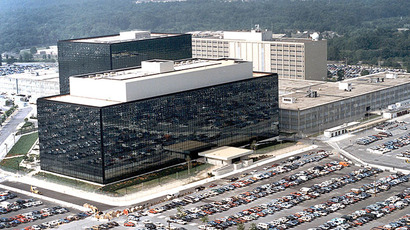Nach den Vorwahlen ist vor den Wahlen

Syria: Russia’s Military Might Surprises West
ANDREI AKULOV | 09.03.2016 | OPINION
Western media has raised hue and cry blaming Russia for great collateral damage in Syria. Much has been said about the Russian air strikes not being accurate enough to minimize the damage to civilian infrastructure and death toll among civilians.
For decades, Western military leaders viewed Russia’s military capabilities with condescension pointing at «obsolete» equipment and many drawbacks. They used to say that Russia was no match for NATO.
But the demonstration of Russia’s military capabilities in Syria has come as a shock.
A just published confidential NATO analytical report on the issue has admitted Russia’s superiority over the Alliance’s forces and has praised Moscow for the «accuracy and efficiency» of its air strikes.
According to the information obtained by German Focus magazine, the Russian Aerospace Forces operations are much more effective than NATO air strikes, despite the Alliance’s numerical superiority.
The article written by Josef Hufelschulte published by Focus on March 5 refers to a classified NATO report, which informs that 40 Russian combat aircraft fly 75 sorties daily to deliver precision strikes against Islamic State targets. In comparison, NATO aviation flies 180 sorties a day to strike only 20 targets.
NATO experts believe Russian SU-35 aircraft to be superior to anything the Alliance has in its inventory.
The paper emphasizes the fact that Russian crews are better trained.
Russia’s combat capabilities are enhanced due to the intelligence data provided by Syrian military.
According to the document, the Russian military operation made terrorists retreat from previously taken positions. What is especially important – the report mentions no Russian aircraft-inflicted civilian casualties at all.
It’s not the first time, when Russia’s military operation is described as a big success.
«The Russian reinforcement has changed the calculus completely», Lt. Gen. Vincent R. Stewart, head of the Defense Intelligence Agency, said in Senate testimony. Assad is «in a much stronger negotiating position than he was just six months ago», Stewart noted. «I’m more inclined to believe that he is a player on the stage longer term than he was six months to a year ago».
In an attempt to match Russia’s achievements, the United States is sending nuclear-capable B-52 aircraft to drop bombs on the Islamic State terror group, defense officials confirmed to Fox News on March 4.
The B-52 Stratofortress will start its first bombing campaign against Islamic State in April, the Air Force Time reports.
It's not clear how many B-52s or airmen will be involved.
An Atlantic Council report issued in late February warns of a grave «lack of progress» in the Alliance’s plans to reinforce itself.
Former Secretary-General Jaap de Hoop Scheffer, Deputy Supreme Commander Sir Richard Shirreff and former Italian defence minister and NATO military committee chair Giampaolo di Paola are among the authors. The paper reads «Many of the alliance’s key members are still dogged by «critical deficiencies» in their «hollowed out» militaries».
A RAND Corporation paper modelling dozens of war game scenarios in consultation with the Pentagon, found that Russia’s forces would overrun NATO in the Baltic, and capture Tallinn and Riga, in a maximum of 60 hours, with a «catastrophic» defeat for defending alliance forces.
The European Leadership network published a report on February 8 warning of many weak points and drawbacks of NATO’s defense posture.
«I think Russia has gained the upper hand in the region and this is by historical measures a novelty. And they have done so by the use of armed force», said Norbert Röttgen, head of the Foreign Affairs Committee in the German parliament and a member of Merkel's conservative party.
Thanks to continuous modernization, the Russian Armed Forces have gained a clear advantage, said one of the key NATO General Hans-Lothar Domröse. This became possible thanks to the Russian electronics and engineering skills, he said.
Russian military jets have, at times, been carrying out more sorties in a day in Syria than the US-led coalition has done in a month. The Russian navy has launched cruise missiles from the Caspian Sea 900 miles away, and kept supply lines going to Syria. The air defense systems installed by the Russian military in Syria are the most capable long-range weapons in the world to keep any potential enemy away. They have array radars that continuously monitor the skies. A missile can shoot down targets at the distance of 250 miles. There are about 40 fixed-wing aircraft based at Latakia: 12 Su-25s and four Su-30SM fighter-bombers; 12 ageing Su-24M2s and six Su-34s. More of the most advanced of these, the Su-34, codenamed Fullback by NATO, have been replacing older aircraft. There are also helicopters and an unspecified number of drones.
The deployment of Russian electronic warfare equipment in Syria, such as the Krasukha-4 which can jam AWACS and satellite radar systems, has been another sobering experience for NATO. Ronald Pontius, deputy to the US Army head of cyber command, stated: «You cannot but come to the conclusion that we are not making progress at the pace the threat demands».
Lieutenant General Ben Hodges, the commander of the US army in Europe, has described Russian advances in electronic warfare in Syria as «eye watering».
It would stand NATO in good stead to know the reality its intelligence has failed to see.
As Russian President Vladimir Putin said pointing out the significance of the West seeing «for the first time that these weapons do exist, that they are of high quality, and that we have well-trained people who can put them to effective use. They have now seen, too, that Russia is ready to use them if this is in the interest of our country and our people».
The events in Syria happened to be an eye opener for the West to make it realize it had seriously underestimated Russia’s military capabilities. Its intelligence has failed again. The events in Syria rectified the omission.


